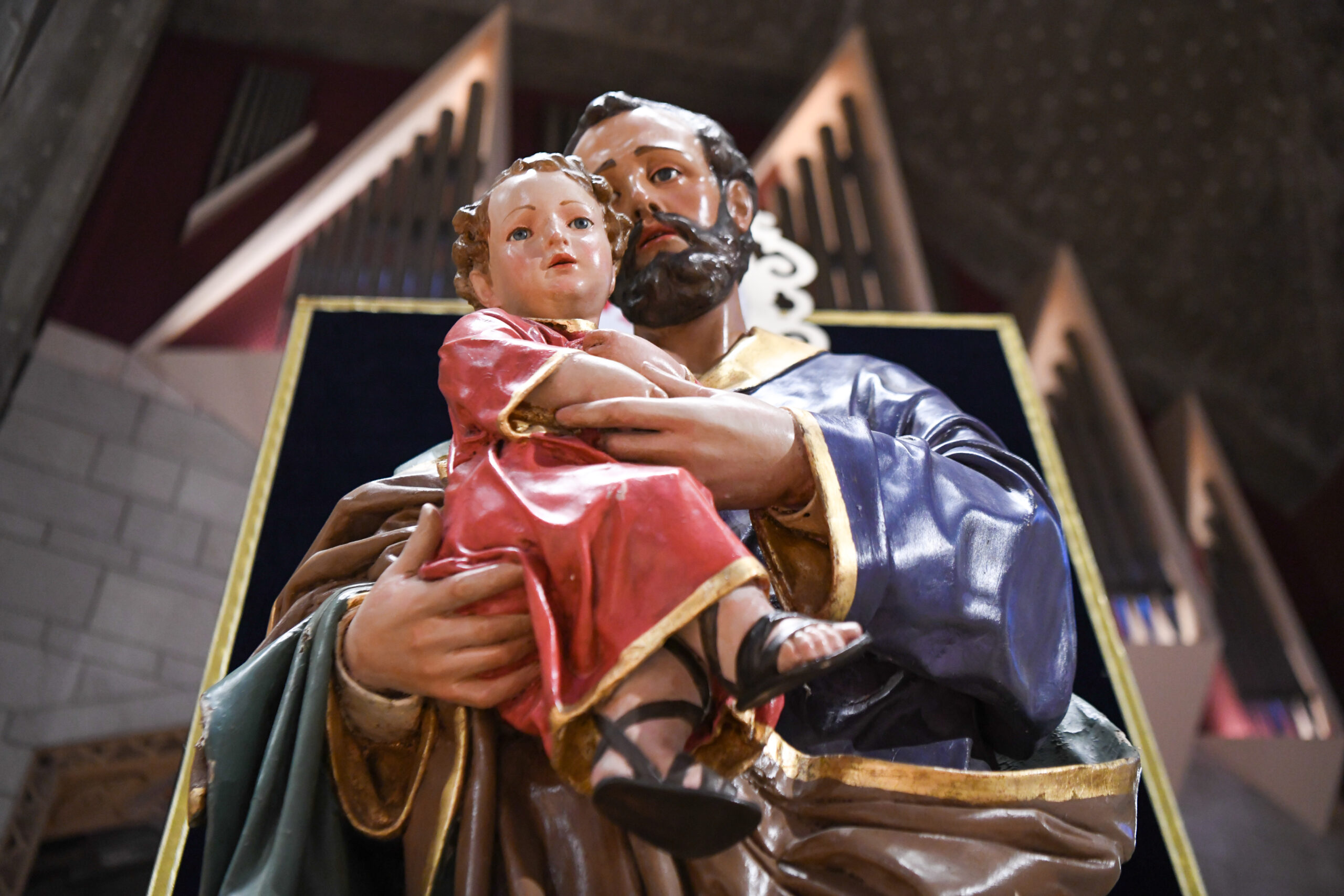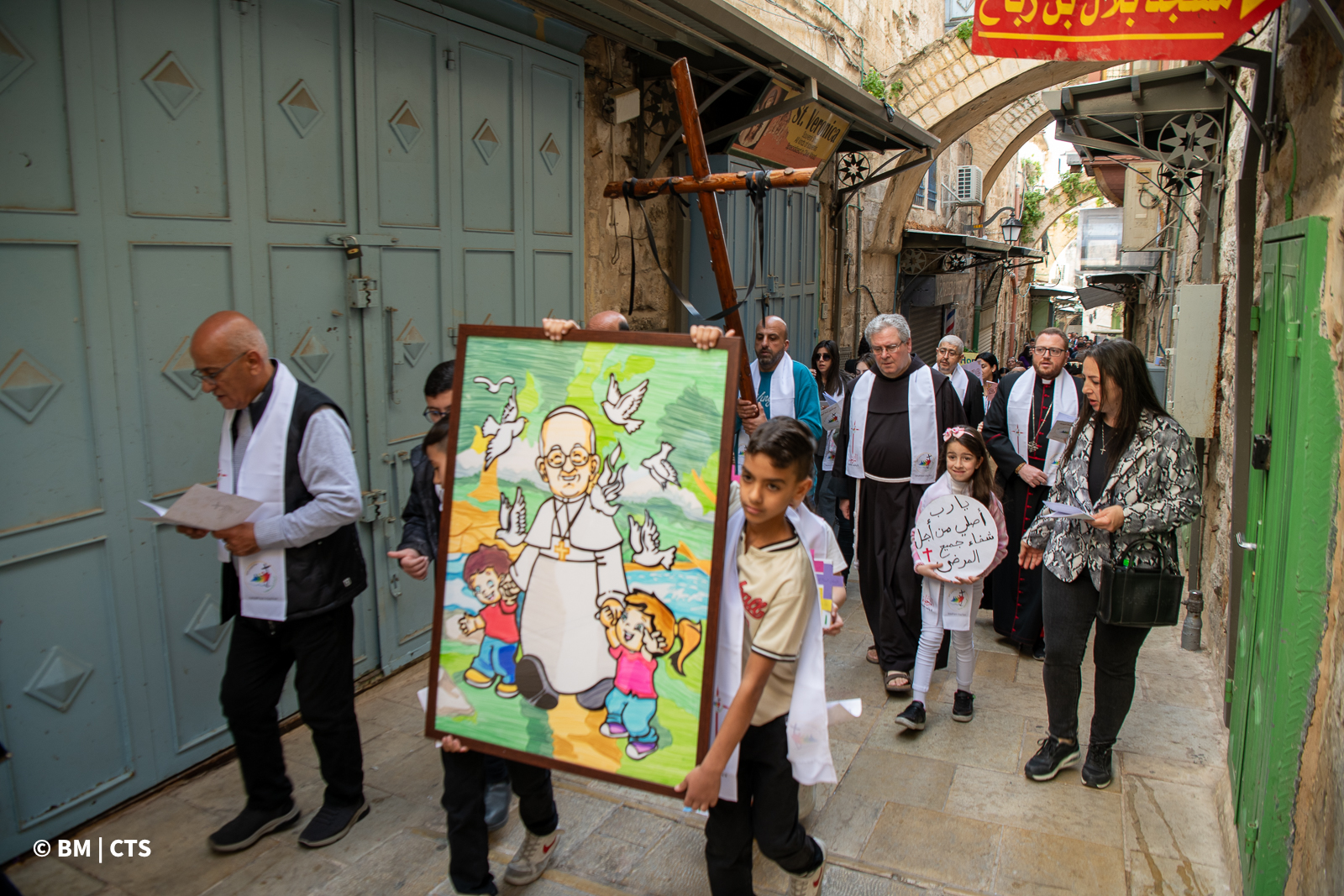
On October 8, a Solemn Mass for men and women consecrated to religious life was celebrated in Jerusalem at the Notre Dame Center, in conjunction with the Jubilee celebrations in Rome.
The Mass was presided over by Card. Pizzaballa, in the presence of more than 200 nuns, priests, religious men and women from dozens of different orders and congregations, as well as heads of churches, bishops, and also the custos of the Holy Land, Br. Francesco Ielpo.
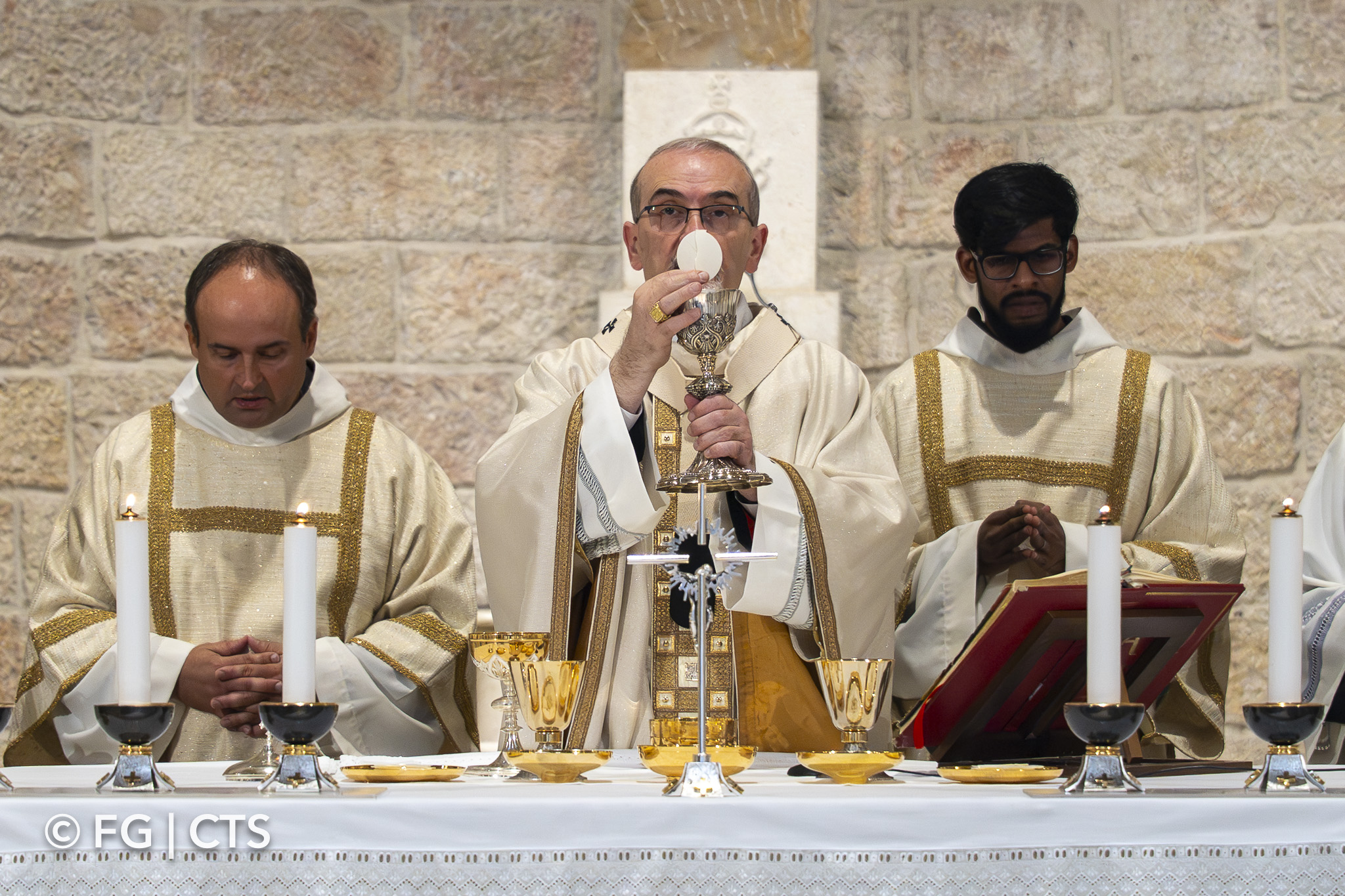
The Jubilee assembly recalled the image of a daily Pentecost: many languages and affiliations that, in the Spirit, learn to understand one another and to seek unity beyond the polarizations of the present time. In this context, consecrated life offers a service to unity, spreading a "spirit of mutual understanding" capable of transforming differences and weaknesses into an evangelical resource for the city and the land.
According to Card. Pizzaballa, the presence of religious men and women covers "360 degrees" of needs in Palestine and Israel: education, care, hospitality, pastoral accompaniment, formation, and social works integrated into prayer and active charity. It is a network that meets wounds and hopes and brings the "substance" of the Gospel into every sphere, transforming closeness into concrete choices for the most vulnerable.
Male and female institutes, ancient and new, contribute with complementary charisms: contemplatives who guard intercession, apostolic communities who animate schools and parishes, congregations engaged in health care, hospitality, formation, and human promotion. This plurality is constitutive: different columns sustain the same building, offering the Church in the Holy Land a credible face of mercy and closeness in daily life.
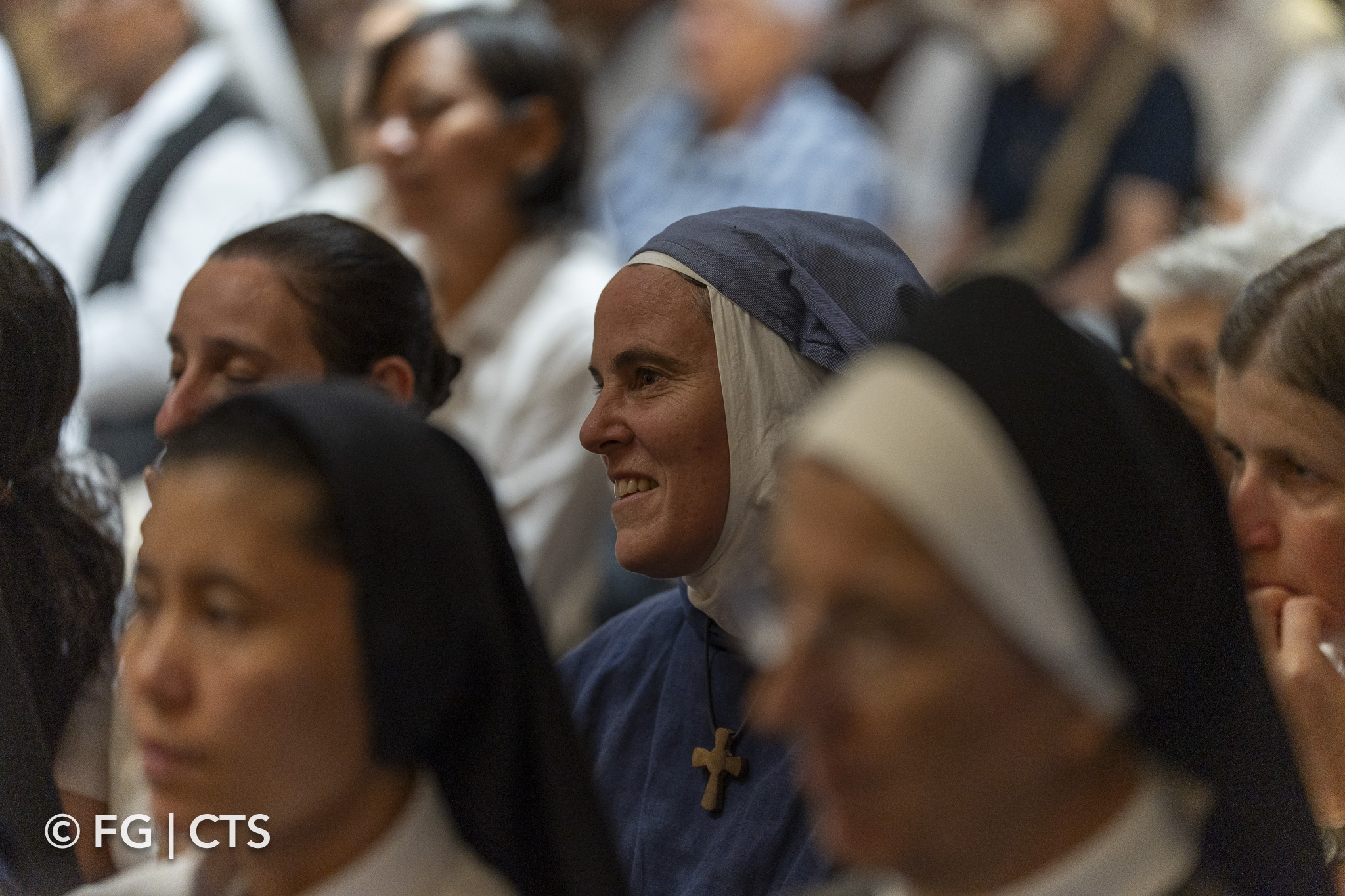
The homily of the Latin Patriarch of Jerusalem sets a decisive criterion: not to bend faith to ideas or political interpretations, like Jonah tempted to "correct" God, but to allow oneself to be converted by the merciful gaze of the Lord. Consecrated life is a school of trust: more than "understanding everything", it is about entrusting oneself to God who guides, raises, and sends according to His times and ways.
The parable of Jonah reminds us that God does not abandon the work of His hands: on the open sea as in the difficult city, His mercy precedes and accompanies the mission. For consecrated persons this means persevering alongside those who are tried, remaining bridges where others build walls, and believing that a word of peace can still take root.
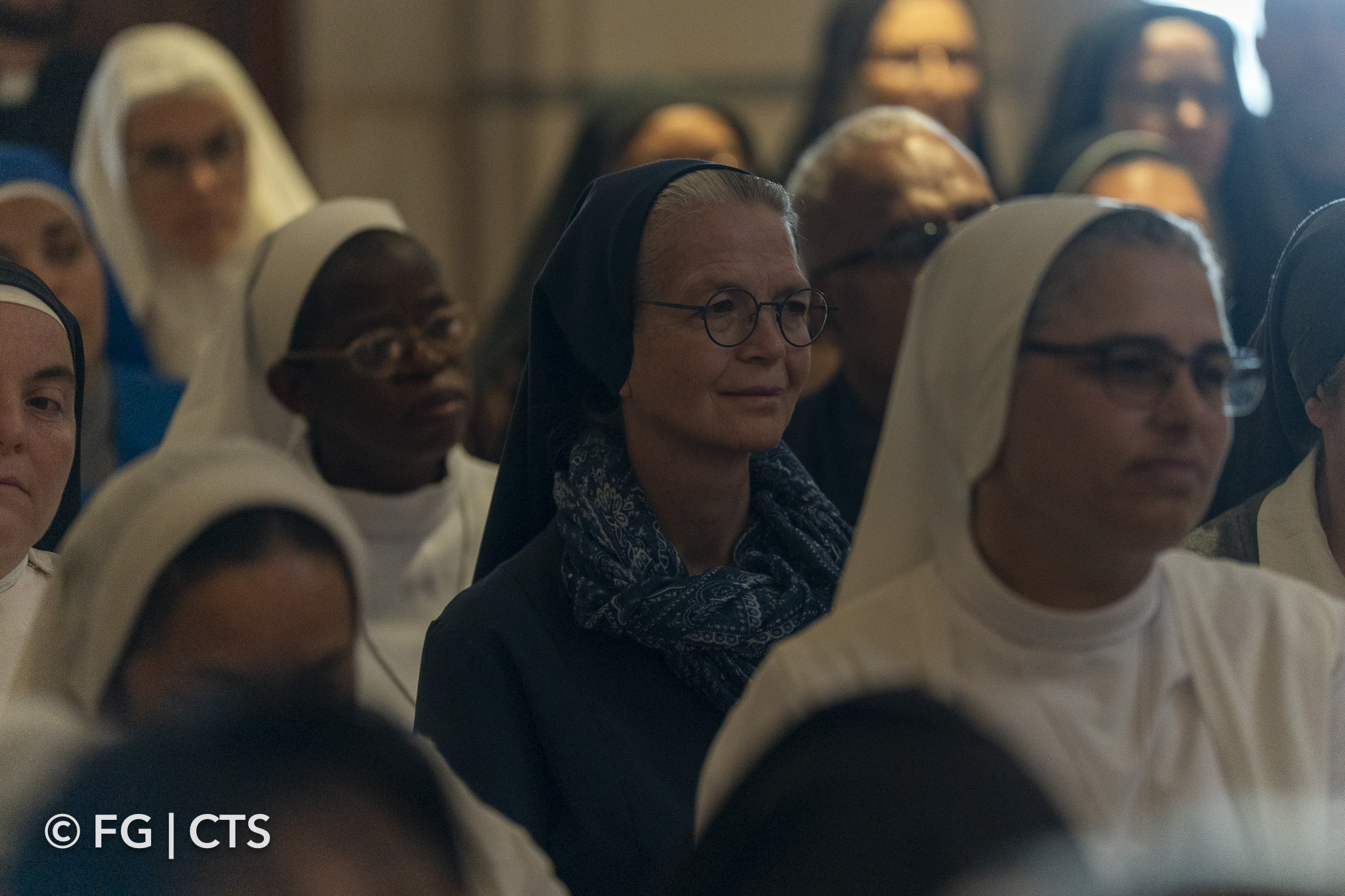
At the end, the Patriarch offered a conference on the presence of the Church in the Holy Land (Palestine, Israel, Jordan, Cyprus), illustrating the pastoral geography, essential numbers of parishes and faithful, and the most urgent needs. The reading of data was placed at the service of discernment: where to consolidate, where to support, where to reopen spaces of encounter and educational and social paths.
In Jordan, the main urgency is economic: the rising cost of living and job insecurity weigh on families and Catholic schools, which are fundamental bulwarks of cohesion and social mobility.
Of particular concern is the need for communities to move in search of work or a dignified life. In this context, it becomes difficult to build, even literally, churches and communities.
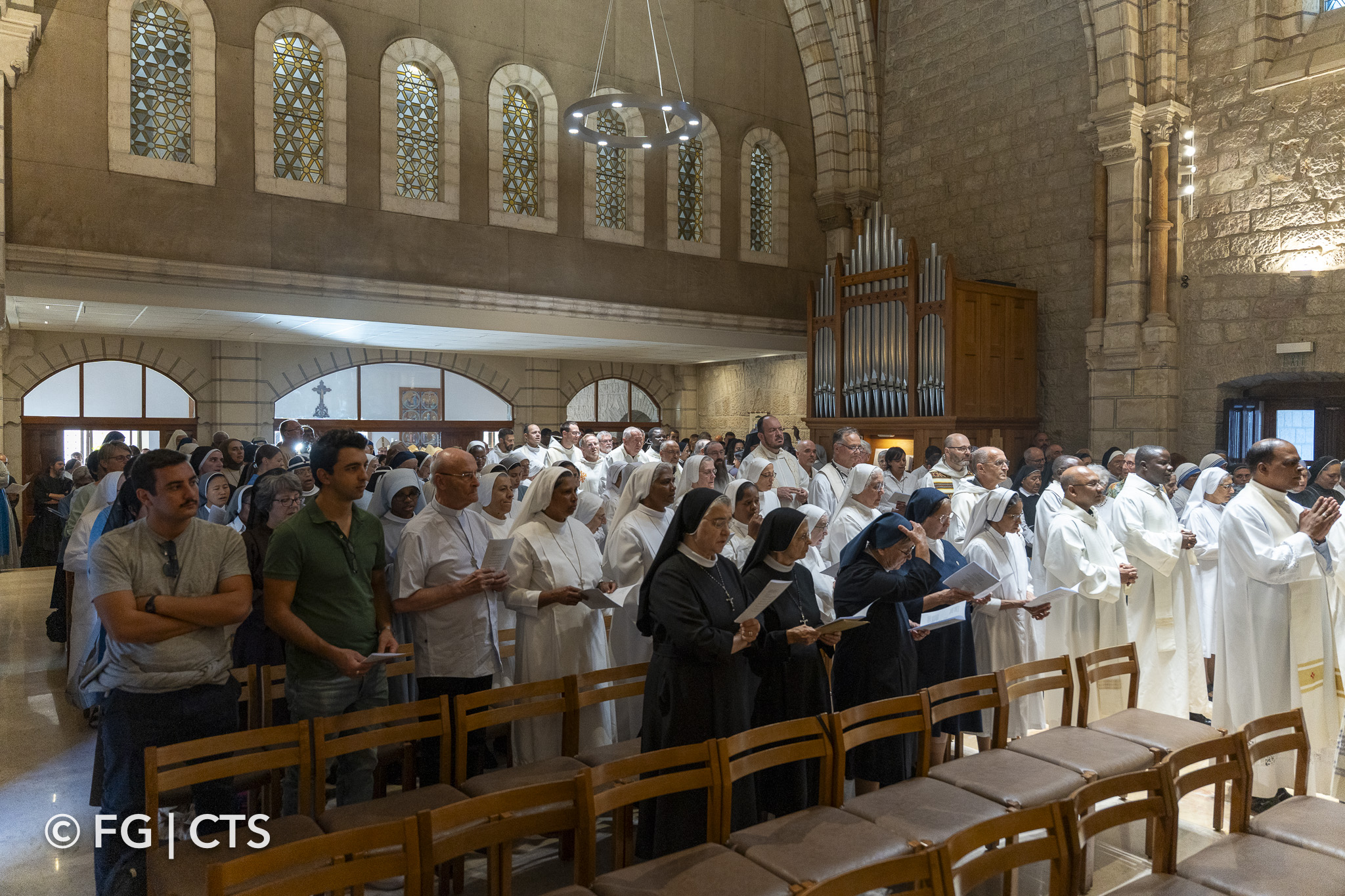
In Palestine, increasingly divided between north (Ramallah, Nablus, Jenin) and south (Bethlehem), the pressure from settlers and the lack of work and pilgrimages increase the isolation of communities. The decline in pilgrim flows affects families and institutions, requiring extraordinary support and a pastoral approach of daily resilience. Notably, the violence and presence of settlers throughout the West Bank create fear, division, and the impossibility of movement (in addition to the difficulties caused by the wall separating Israeli and Palestinian territories).
In Israel, the division between Jews, Christians, and Muslims was highlighted, as well as the scourge of illegality, with particular concern for the area of Nazareth. Added to this challenge is the issue of migrants, which demands legal assistance, social integration, and the protection of dignity through dedicated pastoral paths.

In Cyprus, the ecclesial presence is a bridge of encounter and care that sustains small but lively communities, supporting migrant workers and families in transit. In a hybrid and plural context, the mission is expressed through a "diplomacy of the everyday": liturgy, charity, formation, and relationships of closeness.
Among the immediate needs are support for schools and families, the revival of pilgrimages as a driving force for work and encounter, the protection of communities exposed to violence and illegality, and paths of interreligious dialogue that defuse polarizations. Added to these are the accompaniment of migrants and investment in youth and lay people to root the future and shared responsibility.
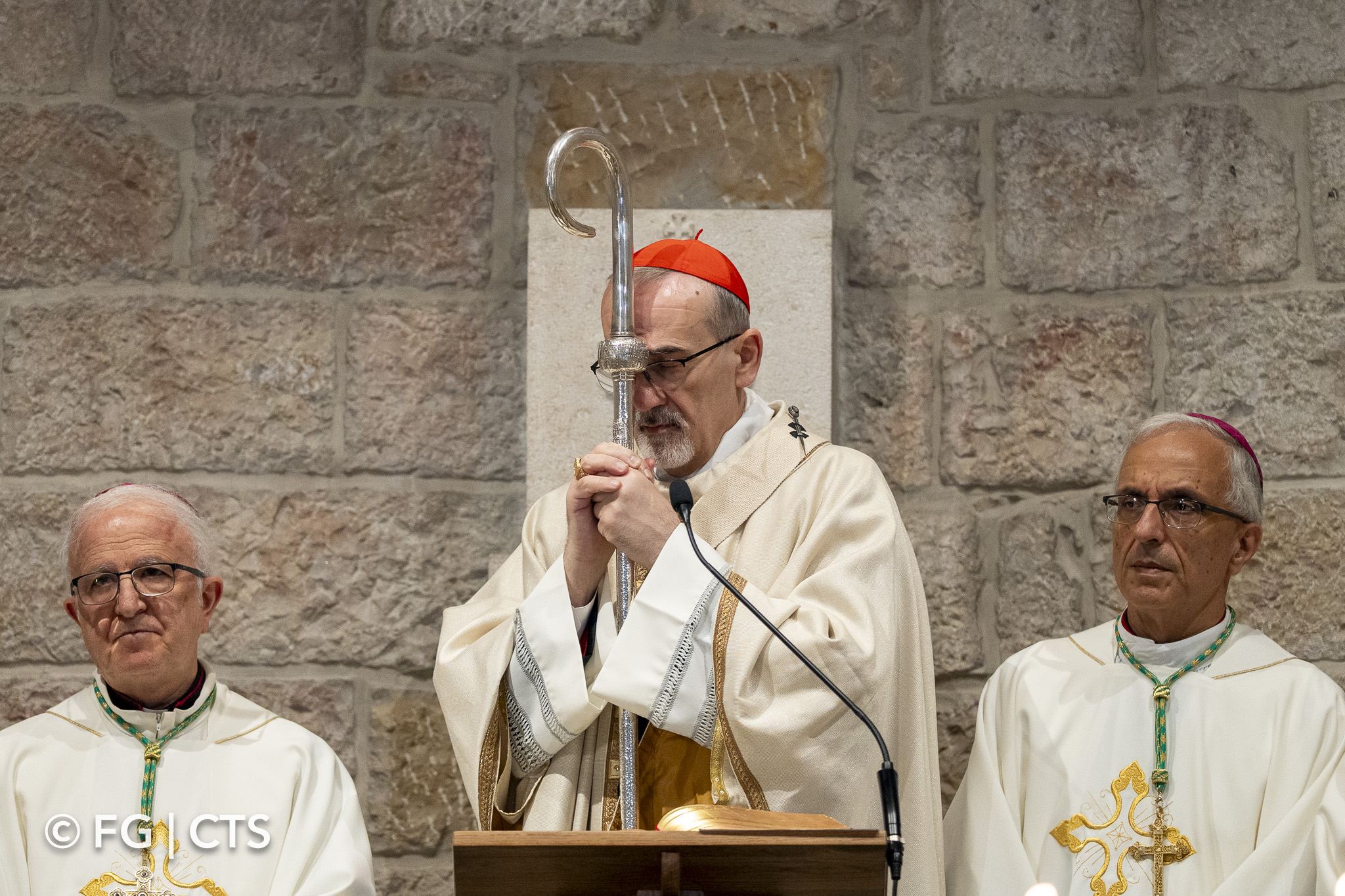
For Gaza, Card. Pizzaballa reaffirmed that the presence of the Church is neither political nor organized resistance: it is the presence of Christ, a testimony that remains in the heart of a wounded world to preserve the dignity of every person. Remaining beside the vulnerable – the elderly, the sick, the disabled, displaced families – means being a Church that shares, consoles, and serves without being instrumentalized by any side.

This presence is made of faces, works, and daily gestures: parishes that welcome, religious men and women who care and listen, communities that pray and keep a light burning in the darkness, for everyone without distinction. The Church does not allow itself to be pulled to any side: it builds peace by remaining, serving, and speaking the language of shared humanity, a universal sign in which Christ is recognized in the wounded and the small.
The criterion remains evangelical: allowing oneself to be converted by mercy that restores, avoiding ideological schemes, and translating the Gospel into concrete closeness. Thus, the Church in the Holy Land – with consecrated life at the forefront – is "a 360-degree service" that listens, educates, heals, and rebuilds trust among peoples and generations.
Francesco Guaraldi
